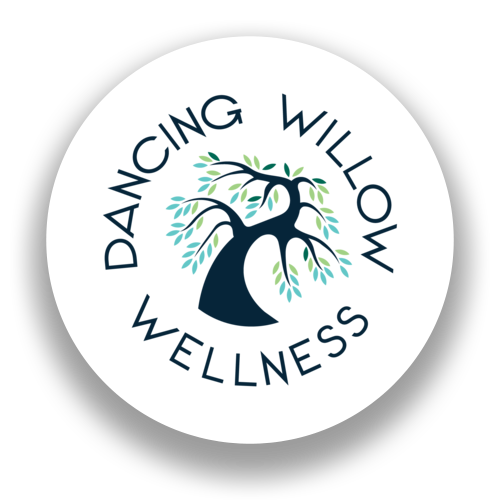“I want to be happy” isn’t an achievable goal
Wait, wait, hear me out! It’s not that I want people to be unhappy.
Throughout my career, I’ve asked clients about their goals: hundreds of clients, hundreds of goals. There’s one answer that wins the majority by a landslide. The answer I typically get is “ I just want to be happy”. I hear this reply so often, it’s hard to remember if I’ve heard anything else in response.
If this is a goal you’ve set for yourself, the biggest obstacle in reaching this goal is your brain; this magnificent, complex, poorly understood organ. It’s evolution is the greatest marvel. It’s the reason we’ve survived and evolved over millennia. Without it, we wouldn’t have climbed the food chain. We have no claws to fight. We can't outrun our predators. We're not very strong especially when it comes to chasing down and tackling our dinner. So, our brains are the only weapons we have to outsmart our threats. We also learned to band together, understanding safety in numbers and the wisdom in putting our heads together.
Our survival has been dependent upon seeing where the danger is, remembering the danger, and avoiding it in the future. All while making sure we get along with the rest of the herd, so we aren't kicked out of the pack. This is why we remember the one negative comment out of ten compliments. It's why we constantly compare ourselves to others, to ensure we aren't too behind the group. Our brains are wired to seek out the negative/threat, to ensure our safety. We’re wired to survive, not thrive.
Beyond this lesson in evolution, here are some other supporting facts we've gleaned from psychology regarding happiness.
1. You can’t measure happy
What makes you happy is a completely subjective experience. As such, there's no way to measure it. That doesn't stop us from trying, which leads to the next point.
2. Happiness is usually defined externally, by external things, and measured by external criteria.
As marketing psychology has shown us, there are several universal beliefs (connected to our basic drives) that advertisers prey upon; if you were only skinny enough, rich enough, famous enough, smart enough, funny enough, you’d be happy. This turns happiness into a measurable objective; the number on the scale, the amount in your bank, the number of ‘likes’ on social media, how often you have sex, how many awards and accolades you’ve received. All of these externalized, quantifiable measurements of when you'll be happy are usually trying to sell you something.
3. Happiness is a temporary experience, not a permanent state
Being happy is defined as being in the state of contentment, joy or delight. These are all feelings. Humans experience a broad spectrum of feelings throughout their day, week and entire lifetime. Emotions are transient. That’s the nature of emotions. They come and go, some with little fanfare, others with entire parades. But like all emotions, they are interim visitors- not permanent roommates.
4. Happiness isn’t an indicator of how well you’re doing
If success, adoration, millions of dollars, and beauty were sufficient in providing happiness, there’d be no celebrities in rehab. On a smaller scale, I’ve worked with successful professionals, business owners, husbands and wives, who can honestly admit that, on paper, they have everything they’ve ever wanted, sometimes more. Yet, they aren’t happy. Actually, they’re miserable, drinking away their guilt for not being happy. Turns out that success and happiness is not a matter of cause and effect.
5. Happiness implies there are no problems
“Once I get _________, then I’ll be happy”. This is a common one. It infers there's only one obstacle to the elusive happiness, and once it's achieved, everything will be fine. I’ve yet to see this happen. In fact, people are surprised when their dream job isn’t all it's cracked up to be. Or, that ‘being their own boss’ isn’t as glamorous as they had hoped. That’s because, whatever goal we associate with the ‘happiness’ we are aiming for, assumes that once we get it, there will be no more problems. But the dream job will have its dull moments. Entrepreneurship is definitely a struggle. There is no situation in life that is free of barriers, struggles, or hardship.
6. Trying to feel happy all the time isn’t the solution, it's the problem
Assuming there IS a situation in life that’s free of barriers, struggles or hardships is, in fact, the problem. Intellectually, we can understand this. But, emotionally, we long to be free of sadness and burdens. So we attach this longing to a goal, which we believe will deliver us from the negative experiences of life.
If you're having a mix of feelings after reading this, you're not alone! Through my work, I'm consistently reminded that we, as a society, don't receive instructions on how to live a fulfilling life. We’re told what we should do, but not how we should be…. How to be a human being, not a human doing. These are BIG questions and topics. Having a trusted and confidential space to help you figure it out is what Dancing Willow Wellness is all about!
Alicia




